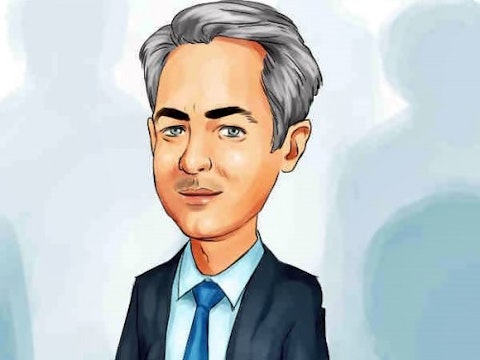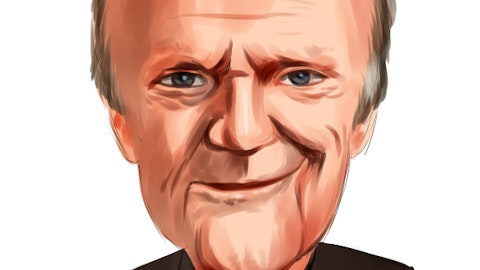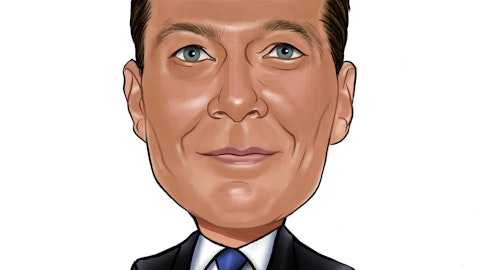Bill Ackman Is Moving His Office To Hell’s Kitchen (CNBC)
It’s official: Hedge fund titan Bill Ackman is moving Pershing Square Capital to a new neighborhood. His firm next year will take up residence in a West Side building, part of an area of Manhattan that’s being transformed into an office and restaurant hub. The new digs will put Ackman in a 67,000-square-foot space at 787 11th Ave., between 54th and 55th streets. The move has been expected for a while, but the lease finalization was announced Wednesday by the Georgetown Company, which has secured a $349.5 million construction loan and is partnering with Ackman on the deal. Pershing’s relocation likely will be complete by late 2017.

Deerfield Hedge Fund Said To Get Subpoena Over Ties To D.C. Firm (Bloomberg)
Deerfield Management, a $7 billion firm that invests in health-care companies, has received a subpoena from U.S. authorities over its relationship with the founder of a Washington political-intelligence company, according to a person with direct knowledge of the matter. Deerfield told investors in an Oct. 27 letter that the government’s request relates to its dealings with David Blaszczak, the founder of Precipio Health Strategies, said the person who asked not to be named because the New York-based firm is private. Deerfield buys shares of health-care companies and also makes private equity investments, according to its website.
Hedge Fund Elliott Management Names Its Biggest Worry: Inflation (CNBC)
In a new letter to investors, executives of the hedge fund Elliott Management warned that rapid inflation is their biggest concern in the current environment, adding that such a spike would not only collapse bond prices, but potentially lead to a stock market crash. “This may seem like a strange thing to worry about under the current circumstances, but the tide toward inflation could turn rather abruptly,” wrote the money managers in their third-quarter letter, dated Oct. 28. “If inflation starts accelerating to an annual rate of high single digits or greater, it will be quite difficult for the mix of strategies that Elliott favors to ‘keep up.'”
Och-Ziff Beats Profit Estimates But Sees Fund Redemptions (Reuters)
Hedge fund company Och-Ziff Capital Management Group, on Wednesday posted a stronger-than-expected quarterly profit, sending its stock higher, but it warned that a bribery scandal will keep driving investors to withdraw money from its assets under management. Third-quarter distributable earnings, excluding adjustments related to taxes and a bribery settlement with the U.S. government, totaled $51.9 million, or 10 cents a share, the company said. This compares with $66.1 million, or 13 cents a share, a year earlier. Wall Street analysts had expected New York-based Och-Ziff to earn 6 cents a share. The company’s stock rallied 3.2 percent to $3.22, paring its gains from a session high of $3.30.
Ex-Brevan Howard’s Melkman Says Top Bet Is Yields Steepening (Bloomberg)
Ben Melkman, the former Brevan Howard Asset Management partner who’s starting his own investment firm, said it’s time to place bets that reflect a shift from monetary to fiscal stimulus in the U.S., U.K. and Japan. Melkman’s top trade is a so-called steepener in the Gilt market, a bet that accelerating inflation coupled with an increase in U.K. government spending will drive up yields on long-dated bonds, he told Bloomberg Television on Wednesday. He expects a similar steepening across U.S. Treasury yields and said Japanese equities will outperform European stocks. Melkman is jumping into the hedge fund industry at a time of turmoil as investors seeking lower fees pull money from firms.
Steve Cohen Protégé Ready, Willing To Put Analysts Out Of Work (DealBreaker)
If Nadir Khan learned anything from three years working for Steve Cohen and then four more running his own hedge fund, it’s that getting the kind of edge—black or otherwise—that lets one succeed is boring and time-consuming. So many phone calls and boring dinners. So many nights poring over spreadsheets. So many annoying e-mails from compliance. And so many employees you have to pay to do it all. And since we’re well on our way to self-driving cars and self-managing hedge funds, shouldn’t we AI and outsource the analysts out of jobs, too? Khan and 230 researchers in Karachi are working on it.
Third Point’s Loeb Says Constant Surprises Have Shaped Market In 2016 (Reuters)
Billionaire hedge fund manager Daniel Loeb on Tuesday told clients that “idiosyncratic opportunities” have helped boost returns this year as a string of constant surprises has shaped markets, adding that more may be in store. With next week’s U.S. presidential election looming large, Loeb’s Third Point hedge fund wrote to clients in a letter seen by Reuters that it is too soon to say what will happen and “we may see surprises on Election Day.” Calling the battle between Donald Trump and Hillary Clinton for the White House the “most disappointing and bizarre election in our country’s history,” the fund managers said it is impossible to say how the outcome will shape growth and interest rates.
Eisman of ‘Big Short’ Sees Massive Changes For Hedge Funds (Bloomberg)
Steve Eisman, a fund manager at Neuberger Berman Group who was profiled in “The Big Short,” says Europe still faces the risk of a financial crisis like the one portrayed in the book while the probability of such an event in the U.S. is very low. “So much leverage in the United States has been taken out of the financial system,” Eisman said on Bloomberg Television on Wednesday. “I don’t think you can say the same thing about Europe, unfortunately.” Eisman, who joined Neuberger Berman after closing his hedge fund two years ago, said the industry is going through massive changes amid lackluster performance and relentless pressure on fees.
Hedge Fund Clients Dump Humans For Computers And Still Lose (Bloomberg)
Losses at Leda Braga’s computer-driven hedge fund this year are running at about twice the level suffered by a macro fund run by billionaire Alan Howard. Yet, while Braga has raised money, investors have pulled billions of dollars from Howard’s fund. The divergence is a sign of the sweeping changes underway in the $3 trillion global hedge fund industry, where investors are shunning flesh and blood traders and putting their faith, and hard cash, in algorithms to bet on macro economic trends. Star traders are losing clients after years of poor returns in a near-zero-rate environment, with managers finding it tough to read economic indicators, predict markets and get an edge in an era of widespread access to information.





